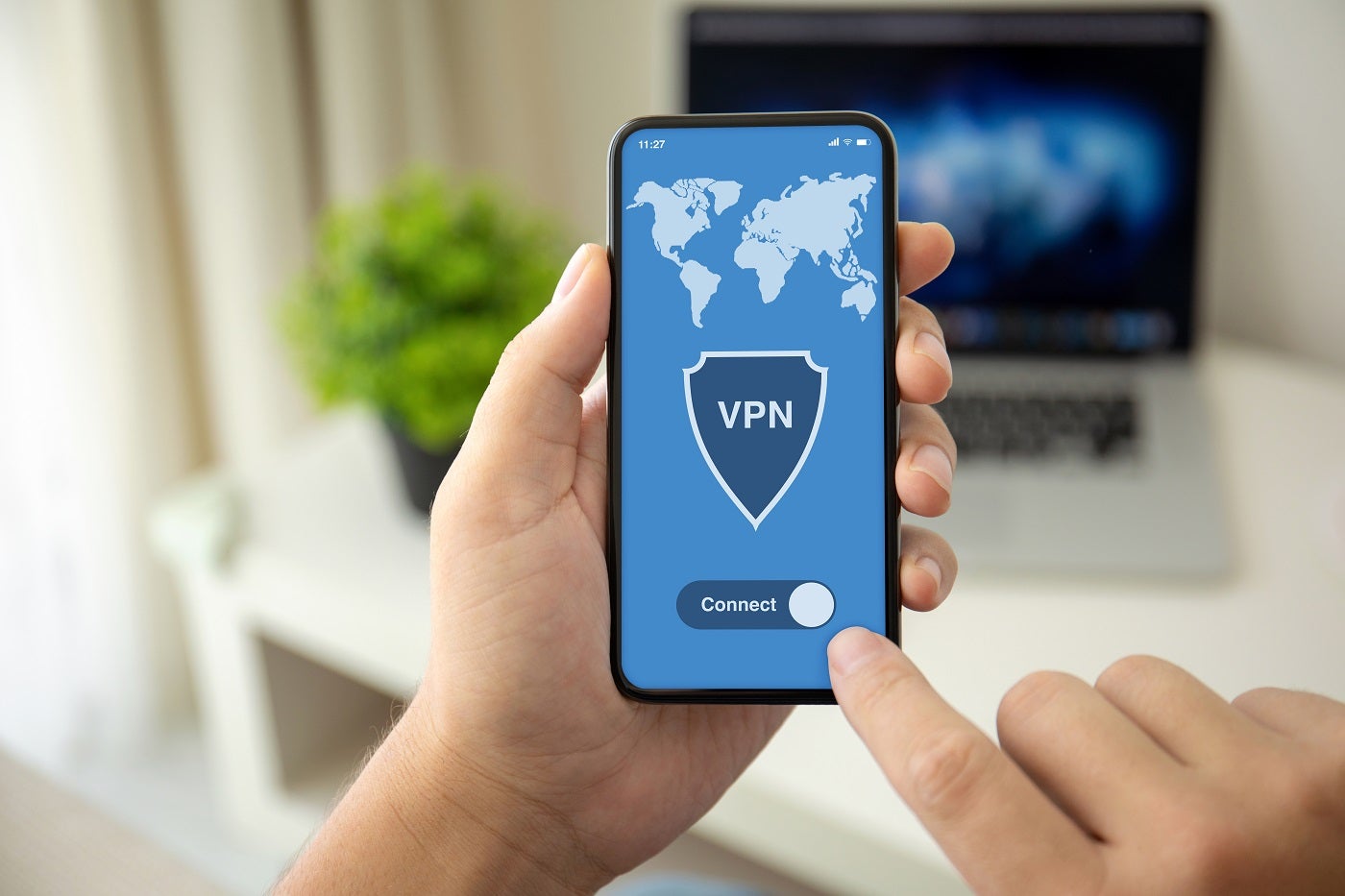Yes, virtual private networks are worth it. In today’s digital age, it’s become increasingly important to protect online data. In the fourth quarter of 2023 alone, more than eight million data records were exposed to data breaches all over the world.
VPNs address this by encrypting the connection between a device and an online network, securing data against hackers and bad actors.
While quality VPNs typically require a paid subscription, they are relatively inexpensive compared to possible losses incurred from a breach or a cyberattack. IBM reported that the global average cost of a data breach this year can reach $4.45 million.
In this article, we’ll offer reasons why VPNs are worth the spend, how free VPNs fare against paid ones and what VPN services can be best for you and your business.
ESET PROTECT Advanced
Employees per Company Size
Micro (0-49), Small (50-249), Medium (250-999), Large (1,000-4,999), Enterprise (5,000+)
Any Company Size
Any Company Size
Features
Advanced Threat Defense, Full Disk Encryption , Modern Endpoint Protection, and more
ManageEngine Log360
Employees per Company Size
Micro (0-49), Small (50-249), Medium (250-999), Large (1,000-4,999), Enterprise (5,000+)
Micro (0-49 Employees), Medium (250-999 Employees), Enterprise (5,000+ Employees), Large (1,000-4,999 Employees), Small (50-249 Employees)
Micro, Medium, Enterprise, Large, Small
Features
Activity Monitoring, Blacklisting, Dashboard, and more
What does a VPN do?
A VPN protects your online traffic by generating a secure and encrypted tunnel which all your data is passed through. This hides your online activity and makes your data illegible to malicious third parties.
VPNs protect sensitive information such as IP addresses, browsing history, DNS queries, files downloaded, and other types of personal data.
SEE: Does a VPN Slow Down Your Internet Speed? (TechRepublic)
VPNs also give you the ability to select an alternate IP address and location and access region-blocked websites. This allows you to view geo restricted content like streaming services, news articles, and locked websites.
To learn more about VPNs, you can check out our full article entitled What is a VPN?
Why you need a VPN for your business
VPNs are a cost-effective way to ensure that your business’ data is protected against cyberattacks and hackers. As more organizations rely on the internet for their regular operations, it’s important to be proactive in securing internal resources.
Confidential information like inventories, business strategies, and internal communications are just a few examples of data that VPNs can protect.
SEE: How Much Does a VPN Cost? + Savings Tips (TechRepublic)
VPNs also bring an additional layer of security to client/s’ confidential data. Through VPN encryption, you can ensure customers that their information is in safe and secure hands.
Additionally, VPNs help secure resources for employees that access a company’s network remotely. As more organizations shift toward hybrid setups, VPNs ensure that no data is accidentally exposed when remote employees access materials on the company network.
What is the downside of having a VPN?
While using a VPN adds a layer of security, there are a few drawbacks that come with it.
Perhaps the biggest disadvantage is slower VPN speeds or higher latency. Since a VPN encrypts your online traffic and routes it to a VPN server, additional steps are added to the overall path of your connection. With these additional steps, your internet speed is likely to get slower compared to when you’re directly connected to your internet service provider.
Fortunately, most quality VPNs will only have a 10-30% decrease in VPN speed that is almost negligible in real-world use.
SEE: How to Tell If Your VPN Is Working Properly (TechRepublic)
There’s also a danger of errant VPNs doing the opposite of protecting user data. Usually done by free VPNs, some providers will outright log or record your data and sell it to third party agencies or marketing companies. This is why it’s important to use a VPN with a no-logs policy that’s been independently verified. You can check out our rundown of the best no-logs VPNs here.
Finally, online sites or services may block or restrict VPNs altogether. Examples of websites that may not play well with VPNs are streaming services or social networking sites.
Free vs. paid VPNs
| Free VPNs | Paid VPNs |
|---|---|
| No payment information required | Requires a monthly payment |
| Limited security, speed and features | Heightened security and performance |
| Only offers a handful of servers | Full server network |
Free VPNs offer access to an encrypted connection at zero cost. Because they’re free, they don’t require users to hand over financial information, such as credit card numbers or bank details.
Some paid VPN providers even offer free tiers of their services. This is a great way to trial a particular vendor’s VPN implementation before purchasing a subscription.
However, there are drawbacks to free VPNs — chief among these is the limited security and performance. Most free VPNs possess weaker overall encryption and have a smaller network of servers. It’s also common for free VPNs to restrict connection speeds and have a cap of only 2-5 GB of usable data per month.
Because the service is free, there’s a good chance that free VPNs sell your data to marketing companies to make up the costs.
SEE: Free VPN vs Paid VPN: Which One Is Right for You? (TechRepublic)
Paid VPNs address all of these issues. They offer the highest quality of encryption and security, grant you access to a full server suite, and typically provide more reliable performance and speed. With a paid VPN subscription, you also get extra security features such as built-in anti-malware protection, ad-blocking, and specialized servers for streaming or torrenting.
Paid services usually offer more robust independent testing on their security claims. While most VPNs carry no-logs policies on user data, not all vendors back these claims through third-party audits. On the same note, paid VPNs are also less incentivized to sell your data since they already make a profit through monthly subscription fees.
Other benefits of paid VPNs over free VPNs are better customer service, more intuitive user interfaces, and support for multiple platforms.
Choosing the best VPN for your business needs
As you browse through various VPN options, there are a few features that you should look out for before purchasing a service.
Top-tier security protocols and encryption
As a security software first and foremost, a quality VPN should come with at least the OpenVPN security protocol. OpenVPN is considered the most popular protocol for its security and reliability. WireGuard and IKEv2 are also expected additions that offer a good balance of speed and security.
SEE: Why Your Business Needs Cybersecurity Awareness Training (TechRepublic Premium)
In terms of encryption, AES-256 is the gold standard. It’s used globally to protect confidential information and is considered military-grade by security experts worldwide.
For a VPN that offers impressive security, I recommend NordVPN. NordVPN carries OpenVPN, IKEv2, and AES-256 encryption. It also has special server types that protect privacy and improve security. For more information, check out our full NordVPN review here.
An easy-to-use and intuitive interface
Not everyone is tech-savvy and comfortable using security software. That’s why it’s important for a VPN to have an easily understandable UI. This makes using the software less intimidating and encourages users to protect their data and utilize the VPN.
On the UI front, ExpressVPN is one of the best. It features a pleasant-looking UI that’s intuitive and easy to use. It also offers a convenient browser extension that serves as a remote control for the desktop application. For more information, check out our full ExpressVPN review here.
Multiple device connections
A VPN should be able to protect multiple devices with one subscription. This is especially true since businesses rely on desktops, smartphones, and other devices for day-to-day work.
Normally, VPNs only support around five to seven simultaneous device connections. This may be a problem if you regularly use multiple devices and want the same protection across the board.
Fortunately, there are VPNs that offer more device connections. One of these is Private Internet Access VPN, which allows for an unlimited number of connected devices. This allows you to protect multiple machines without paying an additional fee. To learn more, you can check out our full PIA VPN review here.
VPN providers to consider
For businesses interested in trying a VPN service, I’ve listed three providers that I feel are worth checking out. All three VPNs below provide fast performance, a solid no-logs policy, and a healthy choice of server locations.
NordVPN
For security enthusiasts, I highly recommend NordVPN. NordVPN includes a slew of additional security features on top of its main VPN service. It has double VPN servers that route your traffic to two different locations for extra security; an encrypted private network Meshnet system for more secure file-sharing; and built-in threat protection against intrusive ads, malware, and trackers.
My favorite part of NordVPN is its server fleet, offering users access to 6,350+ servers across 111 countries — giving it one of the larger server networks in the market.
To learn more, check our full NordVPN review.
Surfshark VPN

If you’re on a tight budget, I suggest taking a look at Surfshark VPN. Surfshark brings affordable subscription plans, especially with its Surfshark One annual plan at $4.09 per month. This gives users a premium VPN, with extra features like email breach alerts, a private search tool, and an included antivirus service.
To me, Surfshark’s highlight feature is its support for unlimited simultaneous device connections. This lets users connect multiple devices without needing to purchase a secondary subscription for more connections. I envision this to be a meaningful value-add for more budget-oriented users that don’t want to necessarily spend more money just to cover more computers, smartphones, or devices.
To learn more, check our full Surfshark VPN review.
Proton VPN

For those on the fence about paying for a premium VPN, I recommend Proton VPN’s free version. Unlike other free VPNs, Proton VPN Free doesn’t have a monthly data cap or bandwidth limit. This means you can realistically use Proton VPN Free as a long term free VPN service. It provides five free VPN server locations and free VPN access to a single device.
If you opt for Proton VPN’s paid subscription, you’ll get access to 8,200+ servers across 112 countries and its maximum VPN speed. Proton VPN also has the advantage of operating from Switzerland, one of the most privacy-friendly countries in the world. This ensures that government surveillance on your data is at a minimum, and you need not worry about intrusive data requests on your personal information.
To learn more, check our full Proton VPN review.
Read the full article here














